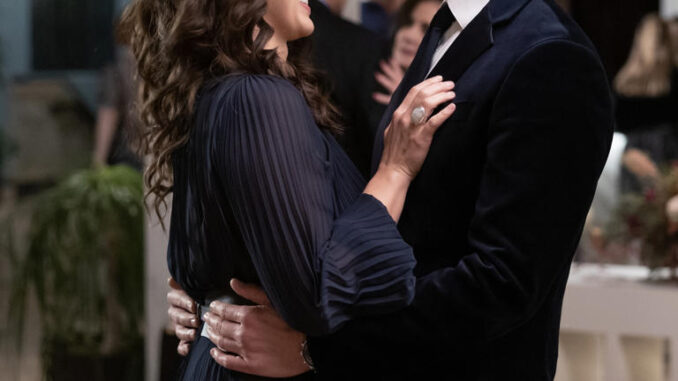
The Uncomfortable Truth About Shared Moments: Mekia Cox, "The Rookie," and the Chenford Kiss
The Chenford kiss. For fans of ABC's "The Rookie," those two words evoke a visceral reaction: squeals of delight, sighs of relief, and perhaps, a lingering sense of "finally!" After seasons of will-they-won't-they tension between Officers Lucy Chen and Tim Bradford, the on-screen embrace in the show's fifth season became a cultural moment, a culmination of slow-burn romance that had captivated viewers. But behind the fireworks and online fervor, the reality was more nuanced. Actress Mekia Cox, who portrays Detective Nyla Harper, recently offered a glimpse into the shared experience of navigating such a pivotal moment, a reminder that even the most anticipated scenes can carry a burden of expectation and, yes, even a touch of awkwardness.
Cox's perspective, as both a colleague and a friend to actors Melissa O’Neil (Lucy Chen) and Eric Winter (Tim Bradford), provides a valuable counterpoint to the often-romanticized narratives surrounding on-screen intimacy. While viewers eagerly awaited the resolution of the simmering tension, Cox and her fellow cast members found themselves in the unique position of witnessing their friends and co-workers embark on a vulnerable and potentially game-changing scene. The shared space of a television set, already a concentrated environment of creativity and collaboration, suddenly becomes an arena of performance, where personal boundaries and professional obligations intersect.
Cox’s reflections likely touch upon the awareness that the kiss was not simply a kiss; it was a product of intricate choreography, camera angles, and multiple takes. The actors, while embodying their characters' passionate connection, were also professionals executing a complex task. This inherent duality can create a palpable tension in the air, a feeling of collective anticipation that weighs heavily on those involved. Imagine the pressure of knowing that millions of eyes will dissect every nuance of the scene, judging the authenticity and chemistry of the moment. This is not a private exchange between two lovers, but a public performance under intense scrutiny.
Moreover, Cox's "struggle," as the prompt suggests, likely stemmed from a deeper understanding of the implications for her co-stars. She, like the rest of the cast and crew, would have been keenly aware of the weight the kiss carried within the narrative. This wasn't just a fleeting moment; it was a definitive shift in the relationship dynamics, a leap into uncharted territory for Chen and Bradford. Supporting O’Neil and Winter through this transition, offering encouragement while respecting their space and process, would undoubtedly have presented a challenge. There’s a delicate balance to strike between being a supportive friend and allowing the actors to fully inhabit their characters without undue external influence.
The unspoken tension within this scenario highlights a critical aspect of the entertainment industry: the performative nature of intimacy. While actors strive to create believable and emotionally resonant moments, they are ultimately delivering a product crafted for consumption. The Chenford kiss, while undeniably romantic for viewers, was also a carefully constructed piece of storytelling. Cox's insight likely sheds light on the less glamorous aspects of this process, the behind-the-scenes dynamics that shape the final product.
In conclusion, Mekia Cox's perspective on the Chenford kiss is a valuable reminder that even the most celebrated on-screen moments are the result of complex human interactions. Her "struggle" to navigate the experience underscores the unique pressures and anxieties inherent in the world of acting, where personal relationships and professional obligations often intertwine. By acknowledging the less romanticized aspects of these pivotal scenes, we can gain a deeper appreciation for the craft and the dedication of the actors who bring these stories to life. The Chenford kiss may have been a moment of romantic bliss for viewers, but for those behind the camera, it was a testament to the delicate art of collaboration, empathy, and the quiet heroism of supporting each other through the inevitable awkwardness of shared, performative moments.
